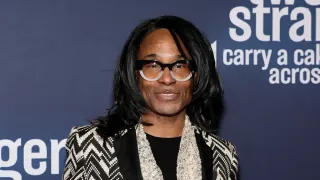December 31, 2016
Less Division and Greater Vigilance
William E. Kelly READ TIME: 3 MIN.
After the elections, we all need to recharge the batteries that keep the compassion in our hearts pumping, our souls at peace and our heightened
emotions calmed, by our mutual ability to lead and be led with reasoned respect and understanding.
It is a time to regroup, reexamine and reassess the differences that divide us and the commonalities that unite us as a free nation, democracy and as human beings.
We are legally bound to accept the election results. But, because we are a nation and people of diverse cultures, heritages, philosophies, beliefs and ideologies we will naturally remain divided in multiple ways. Having said that, we are also a nation and people based on our many unifying qualities
and values. It is those unifying aspects that we must now focus on even as we monitor with great vigilance, the paths and policies our elected local, state and national governments take us down.
Decade-long wars and the threat of terror from within and outside of our borders has left us skeptical that we can ever regain our unity. After a solid year or more of rhetoric as mean-spirited and negative as I have every witnessed, I/we desperately need to find reason to believe we can and will do better as individuals and as one people.
Unlike any period in my nearly 70 years, far too many of us, our families, friends, neighbors and colleagues feel unsafe and unwanted. Too many of us find ourselves unable to achieve, let alone maintain, the American dream and promises our na- tion has held out to the world as the product of a free
peoples' democracy and economy. Too many are finding themselves marginalized. We have become an economy and people slanted increasingly toward the relative few in power, while so many struggle just to meet the costs of shelter, clothing, food, healthcare, education and opportunity.
Many of our communities are happy with the election outcomes and are rejoicing. At or nearly equal in number are the greatly disappointed and mourning. Whichever state you find yourself in, a vast majority remain uncertain of exactly what to expect from the new President, Vice President and their administration. Many have never been more pessimistic over where this election year has taken us thus far and remain fearful of what it could mean or not mean for the future of our lives.
The cast of the Broadway stage play "Hamilton"expressed the feelings I too hold, when they thanked Vice President Elect Pence for attending a performance and added, "We hope you will hear us out: We, sir-we-are the diverse America who are alarmed and anxious that your new administration will not protect us, our planet, our children, our parents, or defend us and uphold our inalienable rights. We truly hope that this show has inspired you to uphold our American values and to work on behalf of all of us."
Whether it comes from the ideological and/or the political left, right or middle, those Americans who choose to divide us as a people and nation, do themselves, their fellow Americans and the free world, a great injustice that can only lead to even greater divisions. We are capable of far better than we as a people have delivered unto ourselves. It is the duty of every single one of us to rise to the call of unity with diversity with liberty and justice for all. We each seek to be true to ourselves and to our fellow Americans with mutual respect for our differences and a greater love, appreciation and honor of the human pursuits of happiness and well-being for ourselves and our loved ones without denying those very pursuits, for those who are somehow different from us.
Please, I implore you to "Just Think About It." Dig deep into your hearts and souls to save and form the more perfect union we can be and the best example of liberty and justice for all.
 Copyright Rage Monthly. For more articles from Rage visit
Copyright Rage Monthly. For more articles from Rage visit 





